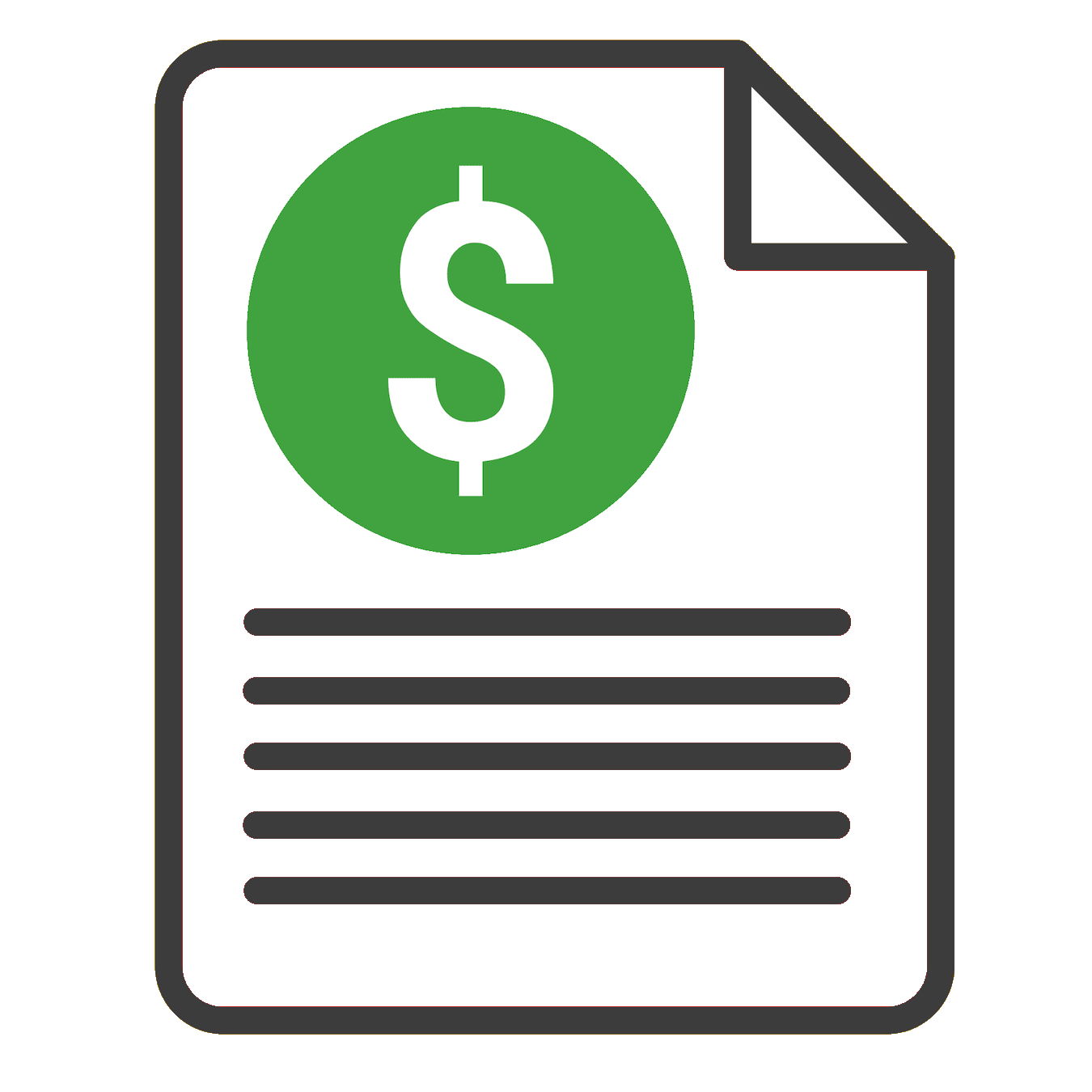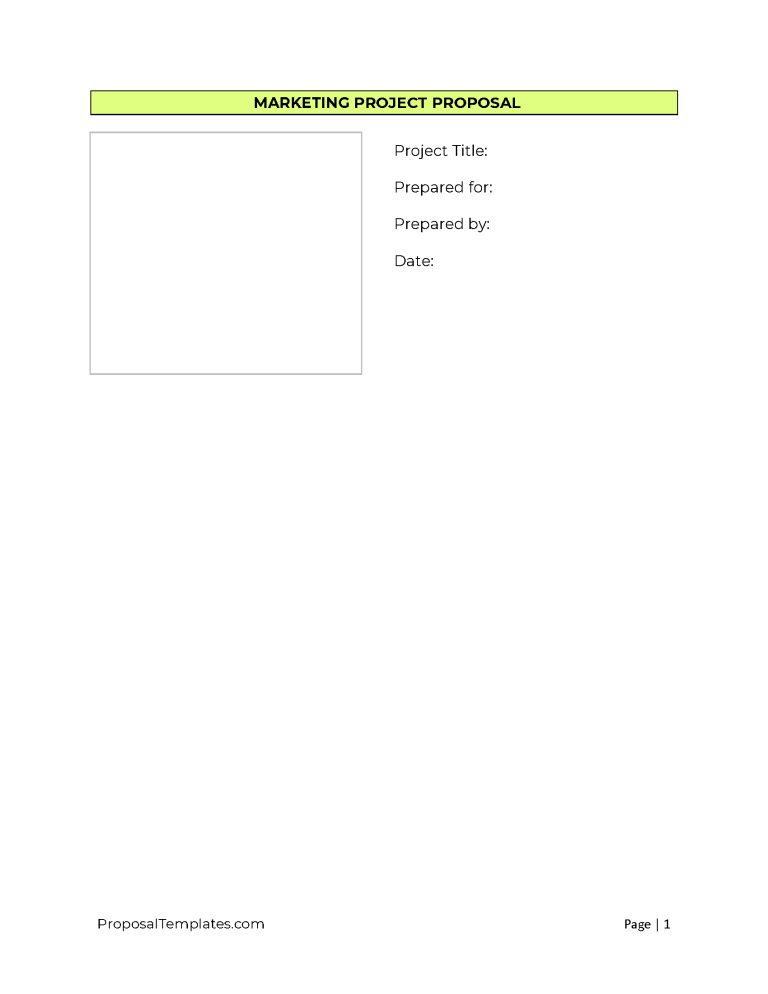Marketing project proposals are meant to be a persuasive communication tool whenever promoting a plan for a product or service’s market presence. Regardless of the target of these marketing efforts, marketing agencies must use this proposal to show their research, audience, budget, and strategies to interested clients.
Types Of Marketing Project Proposals (10)
- Brand Rebranding – A proposal answering projects calling to revitalize a brand with new communication, advertising, and positioning strategies.
- Content Marketing – Proposals for projects specifically requiring expertise in attracting target audiences through high-quality content and strategies.
- Customer Retention – This proposal addresses projects specifically aiming to build customer loyalty while retaining its current customers.
- Digital Marketing Campaign – Proposals featuring online brand presence and audience engagement strategies to attract projects focused on social media and online marketing.
- Event Marketing – This proposal approaches event planners with event marketing packages (i.e., on-site engagement strategies) to win projects.
- Influencer Marketing – Proposals seeking projects where collaborations with influencers must be managed as well as assessed.
- Integrated Marketing Campaign – Proposals to win projects requiring a multi-channel marketing approach (i.e., social media, publications, radio).
- Market Research – Proposals showing a marketing analyst’s data collection and research methods since the project seeks increased market knowledge.
- Mobile App Launch – Proposals presenting marketing strategies (i.e., app store optimization) for projects introducing a new mobile application.
- Product Launch – A proposal targeting projects introducing new products on the market, thus concentrating on strategies to generate interest.
What Should Be Included (14 Items) |
1. Cover Page
Start the proposal with a cover page that cleanly presents the marketing company name and logo as well as the project information. Optionally, elements such as the table of contents, executive summary, or promotional images can all be included.
- Proposal Title/Show Name, Subtitle
- Proposing Company Name
- Event Manager Or Recipient Name
- Logo, Date, Contact Information,
- Author(s), Table of Contents (optional)
2. Executive Summary
Explain the proposal’s contents to the prospective marketing client while promoting the firm’s strategies for the project objectives. Basically, give an overall impression of authority over the specific marketing project’s focus during this presentation.
- Introduction, Objective of the Marketing Project
- Target Audience, Unique Selling Proposition (USP)
- Strategies and Tactics, Budget Overview
- Timeline, Expected Outcomes
- Risk Assessment, Call to Actiom, Next Steps
3. Marketing Project Overview
Describe the scope of the marketing project in detail. That is, every step needed to reach one of its milestone objectives should be discussed.
- Introduction, Project Title, Project Objectives
- Scope of the Project, Background and Context
- Market Analysis, USP, Key Messages, Strategies
- Tactics, Implementation Plan, Risks
- Timeline, Budget Overview, Expected Outcomes
4. Objectives And Goals
Specifically identify the SMART (specific, measurable, achievable, relevant, time-bound) objectives for the marketing project. Be specific since prospective clients must have a clear understanding of the marketing firm’s goals for the project.
- Overall Marketing Goal, Specific Marketing Objectives
- Target Metrics, KPIs, Audience Targeting
- Market Positioning, Competitive Analysis
- Timeframe, Alignment, Integration
- Budget Allocation, Risk Considerations
5. Target Audience
Consider it crucial to define the marketing project’s target audience so the client sees the basis for the firm’s strategy. Thus, present the demographic features of the target audience and the needs the project answers.
- Demographic Information, Geographic Scope
- Psychographic Profile, Consumer Behavior
- Pain Points, Communication Preferences
- Media Consumption Habits, Buying Motivations
- Competitor Interactions, Value Proposition Relevance
6. Market Analysis
Display the assessment results for the marketing project, the competitor landscape, opportunities, risks as well as challenges. Also, present the SWOT analysis (strengths, weaknesses, opportunities, threats) for this project.
- Industry Overview, Market Size, Growth Potential
- Market Segmentation, Target Market, Distribution
- Customer Needs, Preferences, Competitor Analysis
- SWOT Analysis, Market Trends and Opportunities
- Legal Considerations, Barriers to Entry, Market Risks
7. Strategies And Tactics
Spell out the firm’s marketing strategies for the project in order to successfully reach the defined objectives. For example, present the advertising campaigns and marketing channels involved.
- Overall Marketing Strategy, Target Audience Engagement
- Positioning Strategy, Unique Selling Proposition (USP)
- Digital Marketing, Search Engine Optimization (SEO)
- Pay-Per-Click (PPC) Advertising, Social Media
- Traditional Marketing Tactics, Promotional Activities
8. Budget
Include a report showing the total cost of the marketing project as well as the contributing line item expenses. To clarify, list and justify every expense to the client for this project, even those from third parties.
- Overall Budget Summary, Digital Marketing Costs
- Print and Production Costs, Budget Categories, Technology
- Travel, Contingency Fund, Personnel Costs
- Projected Cost, Return on Investment (ROI) Considerations
- Advertising Costs, Media Buying, Content Creation Costs,
9. Marketing Project Timeline
Show the client the timeline of project activities especially scheduled milestones (i.e., due dates). This information must be presented with calendars, schedule sheets, as well as a Gantt chart.
- Project Duration, Key Milestones, Contingency Period
- Phase Breakdown, Activity Timeline, Testing Periods
- Dependency Relationships, Resource Allocation Periods
- Promotional Campaign Timelines, Event Dates
- Advertising Campaigns, Review, Evaluation Periods
10. Measurement And Metrics
Specifically, define the key performance indicators (KPIs) to measure the marketing project’s effectiveness and success. Give a defined schedule for the monitoring procedures as well as the format and frequency of reports to the client.
- Marketing Objectives, Customer Acquisition Cost (CAC)
- Return on Investment (ROI), Data Collection Methods
- Customer Relationship Management (CRM)
- Key Performance Indicators (KPIs), Sales Revenue
- Reporting Frequency, Attribution, Modeling, Feedback
11. Risk Analysis
Define the risk identification and mitigation strategies for the marketing project together with the contingency plans for unanticipated challenges. For instance, include a discussion on the likelihood of encountering the concerned risks.
- Risk Impact, Probability, Control Measures, Communication
- Human Resource Risks, External Dependencies
- Categorization, Mitigation Strategies, Monitoring
- Timeline Integration, Financial Impact Analysis
- Prioritization, Compliance Risks, Post-Implementation
12. Marketing Team And Roles
Generate a roster of the marketing project team members and significantly promote their accomplishments. Describe their experience, industry engagements, as well as their recognition and qualifications accordingly.
- Project Team Overview, Public Relations (PR)
- Social Media Manager, Project Manager, Roles
- Advertising, Media Buying Specialist, Collaborations
- Marketing Strategist, Planner Event Coordinator
- Digital Marketing Specialist, Reporting Specialist
13. Marketing Project Proposal Conclusion
Close the proposal with an especially comprehensive recap of the marketing firm’s solution to the problem. Make a positive lasting impression while inviting further discussions, inquiries, and engagements with prospective clients.
- Key Points Summary, Objective Reiteration
- Feasability Assurance, Organization Goal Alignment
- Stakeholder Aknowledgments, Appendices Reminder
- Contact Information, Enclosures, Closing Statement
- Formatting, Polishing, Call To Action
14. Appendices
Supply the proposal with an appendices area so that supplemental material or difficult-to-manage documents are easy to locate. Materials such as charts, data analysis results, and other unwieldy documents may be placed here and referenced where appropriate.
- Detailed Budget Breakdown, Data
- Customer Personas, Surveys, Questionnaires
- Compliance Samples, Case Studies, References
- References, Citations, Analytic Reports
- Data Reporting, Visuals, Media, Charts

